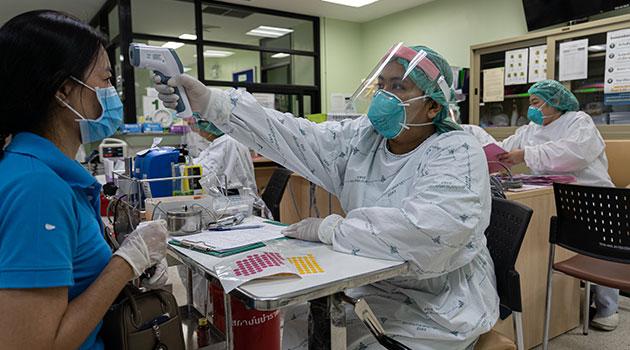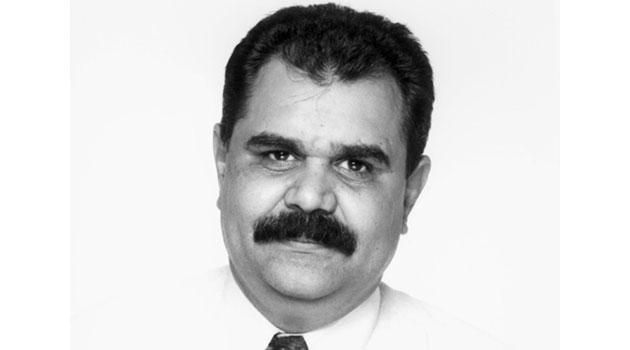Czech public health officials asking whether those testing positive for COVID-19 are Czech or Romani - but questions about nationality not being asked systematically

A staffer with the Regional Public Health office in Písek, Czech Republic who was conducting an epidemiological investigation asked whether a girl who had tested positive for COVID-19 was Romani but did not explain why that question was important to him. Ms Lucie Rácová, a mother of three, was contacted by telephone more than once on 26 March by the Regional Public Health officce in Písek and each call was monitored.
According to Rácová, in addition to the compulsory questions that are meant to aid in better tracking infected persons, the staffer also asked whether the people he was calling about were Czech or Romani. “My daughter had been running a fever since 23 March, so the next day I bought an antigen test for her in a pharmacy and it turned out positive,” she informed Romea.cz.
“I brought her to the district doctor, and on Thursday the infection was confirmed. On Friday, 26 March, Mr Šafránek of the Regional Public Health office contacted us to ask who lives in our household,” she said.
According to Rácová, she provided answers to all of the questions that could lead to the public health authority being better able to track the spread of the disease. “The staffer called us separately about each person in the household, and as the children’s legal representative I spoke for them,” she said.
“He told us each call was being recorded,” Rácová said, who had no problem with the health official monitoring the call. “During the second or third call the question was asked about our nationality, whether we are Czechs or Roma.”
“He didn’t mention any other nationality, just those two. Although I was startled, I gave a truthful answer, which is that while I am Czech, my children are Romani because my husband is a Romani man,” Rácová said.
“He answered that it didn’t matter and that he would be writing down that we are Czechs,” she told Romea.cz, adding that she does not comprehend why it was important to ask about the nationality of the infected person or what purpose such data collection serves. “It sounded to me as if he was reading what he said to me from some forms.”
“When I asked my acquaintances who also were in quarantine like us, people whom I know are Romani, they said nobody ever asked them about their nationality,” Rácová said. News server Romea.cz knows of two other cases where a public health office has asked about the nationality of an infected person during an epidemiological investigation.
One case happened in Prague and another in Brno. The woman in Brno is said to have confirmed her Romani nationality.
Nationality not being systematically tracked – and it’s not clear why
The reasons why nationality is being asked about and whether there are statistics available, for example, about how many Romani people in the Czech Republic have contracted the novel coronvirus, could not be explained by the director of the Anti-Epidemic Department at the České Budějovice Regional Public Health office, Jitka Luňáčková. “We input data into the information system,” she told Romea.cz.
“This is about registration, only the person investigating a case has access to the information. We then send the data to the central management team only,” she said.
When asked why some callers are asking about nationality and some are not, she said: “Either we are doing the tracing, or a professional call center is doing the tracing that has been contracted by the ministry. The questions are prescribed, but what is asked depends on who is answering and what answers are given.”
When asked whether it is at all important to ascertain who is and is not Romani, Luňáčková said it decidedly is not important. “This is not a priority question, but it is being asked there. We are just looking for the source of infection and the route of transmission,” she explained, adding that both the call centers and the public health offices ask whether the person who is infected has traveled abroad while contagious or returned from abroad and whether the person could have brought the infection from another country.
For that reason, investigators are asking whether the person who is infected or being traced is a Czech or a foreigner. When we made the argument that Romani people are not necessarily foreigners and have Czech citizenship, she said: “I don’t know why they put that there, but if the person does not answer the question, that would not be a problem.”
The COVID-19 outbreak in Ostrava’s Přívoz quarter
In association with this case we reached out to Kumar Vishwanathan, the director of the Life Together organization in Ostrava. While he does not have experience with the Regional Public Health office in Písek, he has long collaborated with public health authorities in Ostrava.
Recently, at the instigation of the authorities, Vishwanathan and his team visited the excluded locality of Přívoz where, during March, there was an outbreak of infection and it made sense to ascertain whether the infected persons there were Romani people who might interact with other Roma. “The Regional Public Health office in Ostrava received a report about the infectious outbreak directly from Romani people themselves, specifically from Mr Stojka and Mr Holub, who informed the office that some families were grappling with infection and who were concerned that it could spread to rest of the population,” Vishwanathan explained.
“Previously the public health department called to inform us that there were families in quarantine without any food on hand. They did not inform us that those people were Romani, though, just that they did not have anybody who could do their shopping,” the director described.
“The fact that those families were Romani was not apparent until we contacted them,” Vishwanathan told Romea.cz, adding that his experience with Ostrava’s public health department is very good. “The Regional Public Health office just draws our attention to something when somebody else takes the initiative to contact them.”
“In that one case it was Messrs Stojka and Holub, as I mentioned, and in another case I believe the contact was directly from the families infected,” Vishwanathan said. “With regard to Dělnická Street [editor’s note: an excluded street in Ostrava-Poruba], that is interesting, but I do not believe the public health official was contacted by anybody in association with the fact that Romani people live there.”
“I am convinced that public health officials are already aware that a larger number of Romani people live on Dělnická Street, and in which specific building, because they know that locality well and such information is generally known,” Vishwanathan explained in response to being asked why, as the director of a Romani organization, he had been contacted by the Regional Public Health office in Ostrava in association with Dělnická Street. “We have not visited that locality yet, we haven’t had time, but we are planning to.”
